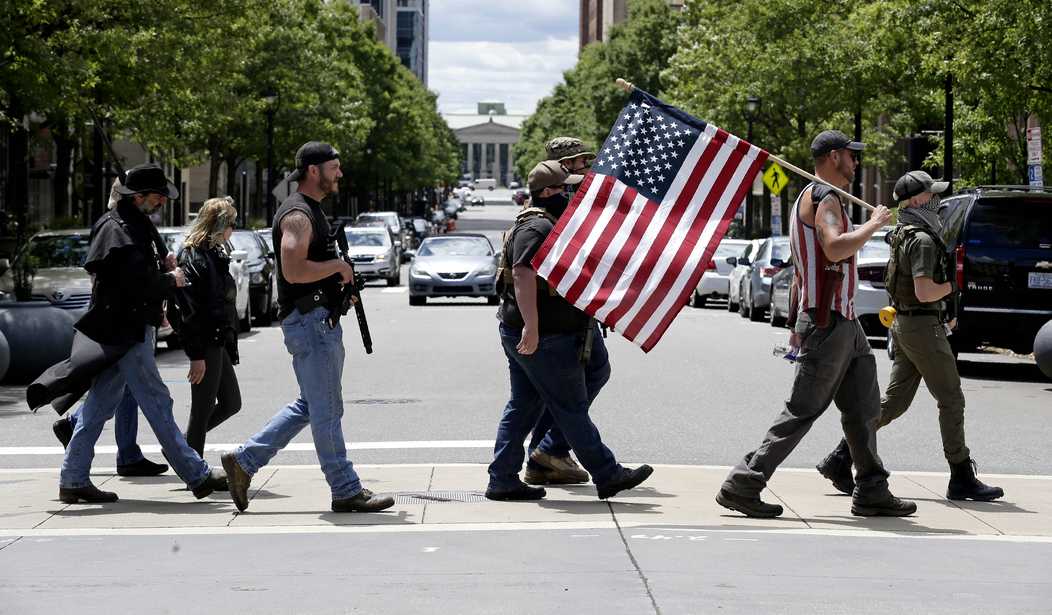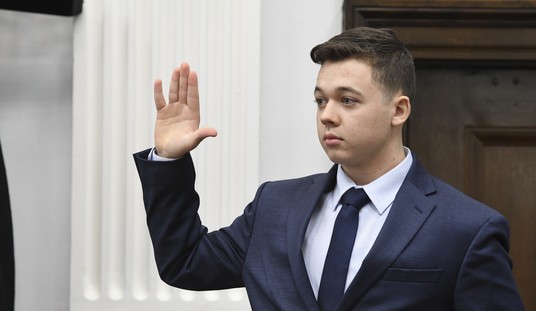The Second Amendment has long been treated as a second-class right by gun control activists and even some unarmed Americans who simply aren’t as concerned about protecting a right that they’re not currently exercising. Unfortunately for those opposed to the right to keep and bear arms, 2020 was a banner year for new gun owners with an estimated 8.5-million Americans purchasing a firearm for the very first time.
As you can imagine, gun control activists are not happy about these developments, and their opposition to exercise of our Second Amendment rights is leading some down a dangerous road; arguing that we must restrict the right to keep and bear arms in order to protect other civil rights.
Law professors Joseph Blocher of Duke and Reva Seigel of Yale make that case in a new piece at The Atlantic, proclaiming that we need more gun control laws to protect “citizens’ equal freedoms to speak, assemble, worship, and vote without fear.”
Is the Second Amendment an obstacle to gun regulation intended to protect the public sphere against weapons threats? In 2008’s District of Columbia v. Heller, the Supreme Court found that Americans have a right to keep and bear a handgun in their home for self-defense. In doing so, the Court assumed a paradigmatic scene of gun use: a “law-abiding citizen” defending his or her household against a criminal invader. But the Court did not address scenes in which guns threaten the exercise of liberties by other law-abiding citizens, whether those threats occur in the home or in public.
Heller’s distinctive focus may well have created a blind spot. The Court—changed by Donald Trump’s appointments—is now poised to expand constitutional protections for gun rights outside the home, but may do so without taking into account how the practice of public carry has changed in the past decade. Over the past 10 years, advocates have sought, with some success, to normalize open carry of firearms in public spaces as they participate in market and political activities. The result is not just lone individuals carrying guns while buying coffee at Starbucks or shopping at Walmart. Open-carry advocates in militia dress amass at right-wing political protests, including in Charlottesville in 2017, at “gun sanctuary” rallies, at anti-lockdown demonstrations, and at Black Lives Matter counterprotests.
You can already tell what a fundamentally unserious argument this is by the fact that Blocher and Seigel completely ignore the open-carrying at left-wing political protests, including CHAZ in Seattle, the NFAC in Louisville in Atlanta, and even the rise of left-wing “militias” like the John Brown Gun Club. If the pair are concerned about the normalizing of open carry over the past decade, they should at least be intellectually honest enough to recognize that it’s been a bi-partisan phenomenon.
But the law professors aren’t just uncomfortable with the open carrying of firearms during political protests. No, they’re opposed to carrying in general.
Gun-rights advocates have thus expanded practices of gun use, and urge the Supreme Court to extend Heller’s constitutional protections to public carry outside the home. But many advocates of gun regulation focus on threats of physical injury only. Without question, gun regulation is needed to address the mass shootings, intimate-partner violence, and daily homicides that account for roughly 40,000 deaths and 100,000 injuries every year. Americans also need their democratic government to work, and that means protecting citizens from intimidation when they exercise their civic rights, and protecting government officials from weapons threats when they are trying to conduct normal business.
Is there a constitutional basis for this argument? Gun-rights supporters claim that constitutional history places the rights of armed citizens above all others. But, as we argue in a forthcoming article, this claim is based on a mistaken understanding of the relevant legal history and of Heller itself. For centuries, the Anglo-American common law has regulated weapons not only to keep members of the polity alive, but to protect their liberties from weapons threats and to preserve public peace and order. William Blackstone himself, the great chronicler of the common law, wrote that “riding or going armed, with dangerous or unusual weapons, is a crime against the public peace, by terrifying the good people of the land.” The “peace” that the law protected encompassed more than physical safety. As Blackstone made clear, “terrifying the good people of the land”—not just attacking them—was “a crime against the public peace.”
The professors completely ignore an important part of Blackstone’s statement; the “dangerous or unusual” qualifier. The Supreme Court has already recognized that firearms that are not “dangerous and unusual” are protected by the Second Amendment, which itself protects the right to not just keep arms but to bear them as well.
Blackstone also isn’t the last word on the matter. Over the course of this nation’s history, the vast majority of states have recognized the right to carry a firearm in self-defense, though many legislatures in the 19th century reserved the right to regulate the manner of carry. There are now 42 states that have “shall issue” concealed carry laws, while 18 states now require no permit at all for legal gun owners to carry. Clearly the right to bear arms is a well-established right, and one that tens of millions of Americans exercise on a regular basis, even if the Supreme Court has not yet weighed in specifically on the matter.
The Second Amendment is not in conflict with the First Amendment, Fourth Amendment, or any of our other rights protected by the Constitution, and our rights don’t have to be exercised one at a time. We don’t give up our Fourth Amendment rights when we peaceably assemble, so why should we lose our Second Amendment rights when we gather in support or opposition to a piece of legislation or governmental action?
Well, the obvious answer is that we shouldn’t have to give up our Second Amendment rights in order to exercise our right of free speech, public assembly, and private worship. Unfortunately, that’s the world that gun control activists want, and it’s one reason why you’re seeing the rise of Second Amendment sanctuaries around the country; a grassroots response to the creeping authoritarianism of gun control.









Join the conversation as a VIP Member